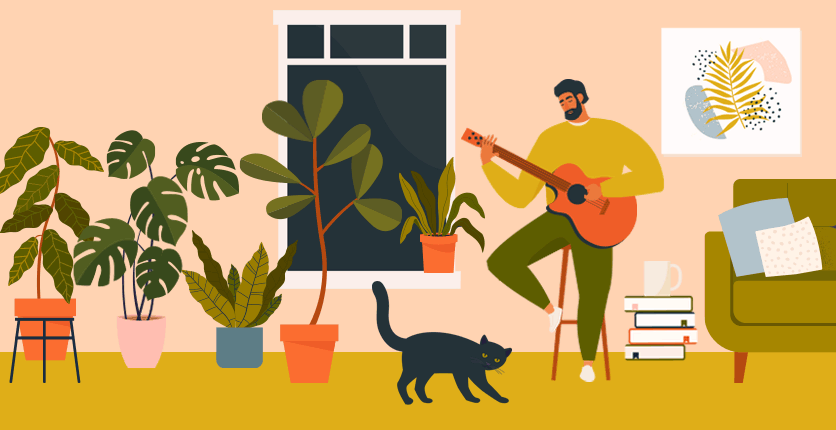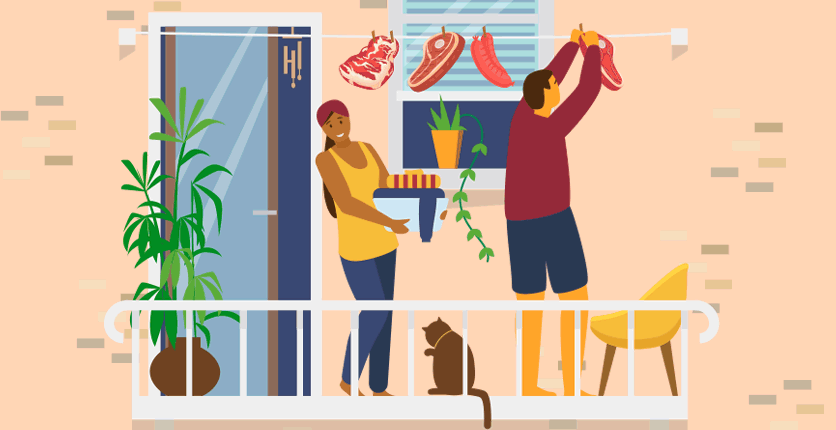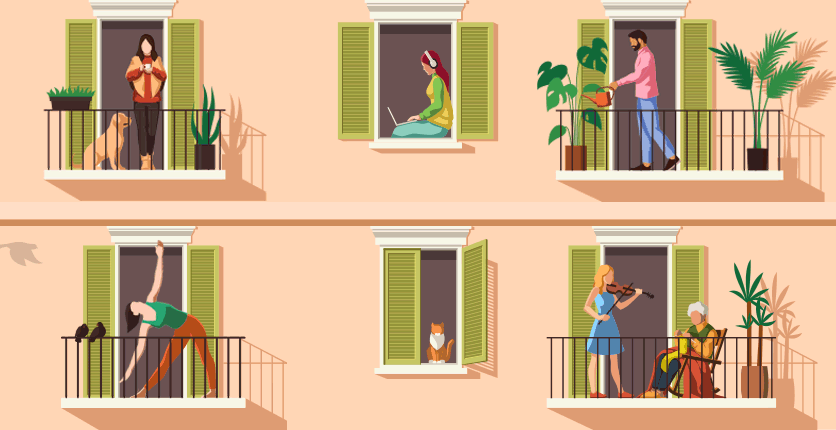So you think you know how to be a good neighbour – saying “hi” and “bye”, sharing your homecooked food, and so on and so forth. But given how we are staying in more often than ever, you might need an update about living the neighbourly life in Singapore, regardless of whether you are living in public or private housing. Here are 4 simple common practices or situations that you ought to take note of for peace of mind – for you, your neighbour and the community on a whole.

Who Let The Dogs (And Cats) Out
No matter how cute your doggo is or cuddly your kitty is, there’s no reason to let them have the run of your home and the neighbourhood. As much as there are people who are animal lovers, there are those who are also frightened of them or have actual medical allergies to them. When you are out with Lil’ Bow Wow, make sure you keep it on a leash so that it won’t run away, toward traffic and people, or worse, end up biting someone. Make sure to clean up any poop your doggo leaves behind and don’t forget to wash away its pee, too; you can always bring a small water bottle to help you do so while you’re out walking the dog.
If you have a feline fur-kid, you might want to keep Garfield indoors. Having your cat reclaim its animalistic nature around the nabe is never a good thing; it could get lost, meet an accident, get into fights with community cats, wander into other people’s homes, or urinate or defecate along common corridors, staircases and void decks. And if an HDB resident makes a complaint to your estate’s Town Council about your feline leaving his “business” on their doorstep or intruding into their home, you might get into legal trouble. Though the practice is tolerated, it is illegal to house a cat in your HDB flat. The last thing you want is for your cat to be taken away and for things to escalate into a “cat and dog” fight (read: a dispute between your neighbours and you).

Plant Problems
Yes, growing flora is a thing now (read which ones to get here!) but it doesn’t mean you should go completely wild. Keep your “jungle” strictly within your house or on your property. For HDB flat owners, it means no taking over the public areas outside or near your flat with pots of plants, clogging the common corridor (it’s not your Green Corridor, please) and encroaching across shared spaces with your neighbours. For house dwellers, it means not letting your tree extend its branches over the wall into your neighbour’s premises and letting vines crawl over their wall, gate, railings or pillar. Sharing your greenery is good, but not if your neighbours have to sweep up the twigs and leaves that have fallen from your pet flora, deal with any uninvited insects or having the greenery actually blocking their space (shared and owned) instead of beautifying it.

The Ins And Outs Of Smoking At Home
To clarify (and also remind): having a puff is not allowed in the common areas of HDB flats such as corridors, stairwells and void decks under the Smoking (Prohibition in Certain Places) Act. In case you didn’t know, the National Environment Agency (NEA) does conduct thermal camera deployments within residential areas to catch any illegal “light-ups”. While you can smoke at home, there has been growing discussion about banning smoking at windows and balconies of public and private residences because of the secondhand smoke that can drift into other people’s homes. Even though there are only advisories currently being issued against smoking at these spaces, what can smokers and non-smokers do to get along?
If you are the smoker, be considerate and socially responsible. Keep your windows closed when you light up (it’s hard but doable), or try to lower the frequency of your smoke breaks or keep them to places where you can legally have one. If you are the non-smoker, be mindful and civil. Keep your windows closed (also, doable) or approach your smoking neighbour and have a chat to help solve the situation, perhaps with suggestions on when they should light up and when they should not. And it doesn’t hurt to bring along your best home baked goods to help with the negotiations – it’s a kind neighbourly act if nothing else!

Drying Food Is Not The Same As Drying Laundry
If you have been catching the news, there have been increasing complaints about people drying – not wet clothes – but raw food outside of their residences. Slabs of pork hung outside the kitchen window, racks of raw meat slapped on air-conditioner compressor vents – it’s an “A” for inventiveness, but “Eww” for neighbourliness. So many reasons why you should not adopt this habit, even if you are running a home cooking or baking business: It is unhygienic, the smell can waft into other people’s residences and pests such as birds and flies might be attracted to this outdoor feast. Don’t be surprised if your neighbours turn you away when you appear bearing your homecooked food to have a conversation about secondhand smoke issues!
And about drying your dripping wet laundry (that can also include mops, dyed materials that can leave stains, and so on)… it is a perennial problem for HDB dwellers that can be easily solved with some thoughtfulness. Just make sure to wring the items as dry as possible before doing so, hang them indoors or just pop down to the local laundromat (conveniently found in all HDB estates) to machine dry them if you don’t have a tumble-dryer at home.
Total Defence Day falls on 15 February. Social Defence – one of the 6 pillars of Total Defence – is about people living and working together in harmony and spending time on the interests of the nation and community.
If you wish to find out more about how to be the neighbour everybody wants living next to them, you can check out HDB’s community site.







